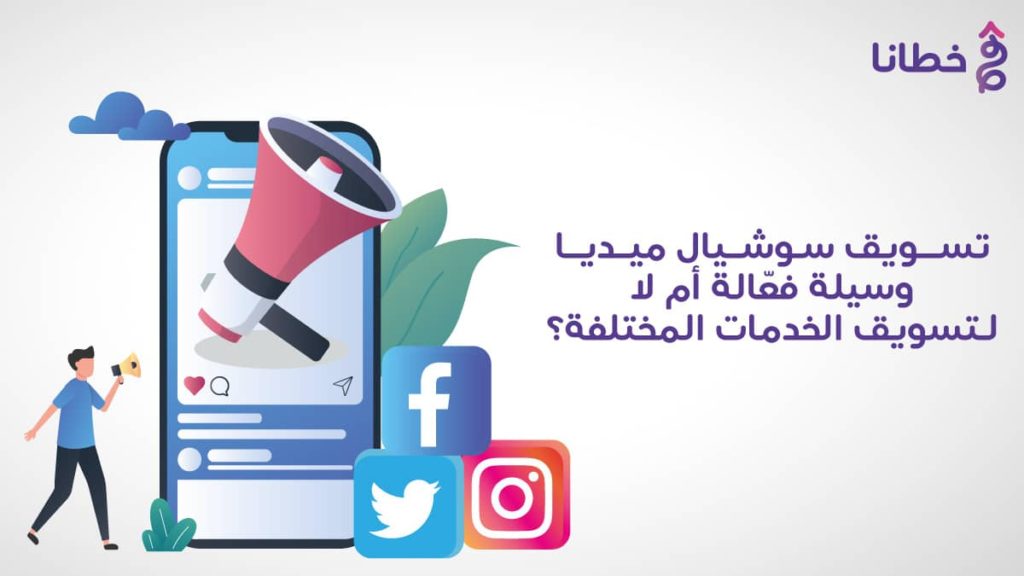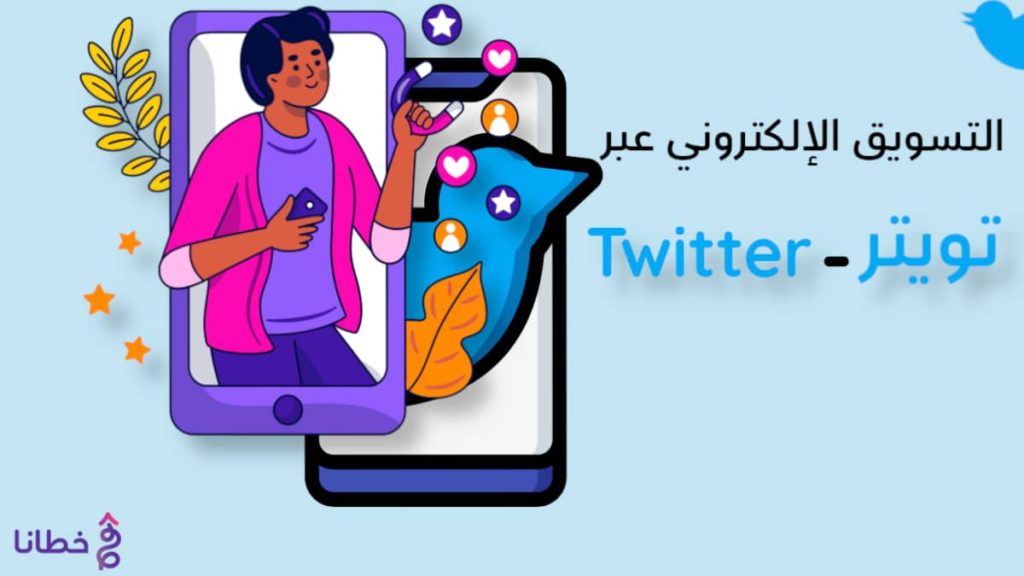table of contents
App marketing is one of the most important tools that companies rely on to reach their target audience. With the increasing use of smartphones, it has become necessary for companies to adopt innovative marketing strategies based on applications to reach their customers effectively. App marketing is not only limited to increasing brand awareness, but also extends to improving the user experience and increasing engagement and sales. In this article, we will discuss the importance of app marketing, its strategies, and tools, in addition to successful examples that can be learned from.
What’s up with your fight?
App marketing is the use of mobile applications as a means of promoting products or services and increasing brand awareness. This type of marketing relies on reaching users through the applications they use daily, whether they are social media applications, games, or service applications.
App marketing includes a set of strategies and techniques that aim to attract users and motivate them to interact with the application. This can include App Store Optimization (ASO), in-app advertising, email marketing, and other methods that help increase the number of downloads and engagement with the application.
The importance of app marketing in the digital age:
In today’s digital age, app marketing has become a necessity for businesses that want to stay competitive. With the increasing use of smartphones, apps can provide an effective way to reach customers anytime, anywhere. Additionally, apps can enhance the user experience by offering personalized and easy-to-use services, increasing customer loyalty and boosting sales.
Is it possible to reach a large audience by marketing through just one app?
In short, you can reach a large audience through one application if it is popular and has many users, but if it is not popular, you will need to use more than one application and platform to achieve this goal.

What is the best strategy for app store optimization?
The best App Store Optimization (ASO) strategy depends on a set of steps that help increase the appearance of the application in search results and increase the number of downloads. Let me tell you about the most important of these steps:
Choosing a suitable name for the application:
- The name should be clear and easy to understand, and express the function of the application.
- Use keywords in the name if possible.
Improve description:
- Write an attractive and useful description of the application, explaining its most important features and benefits.
- Use keywords naturally in the description.
Use of keywords:
- Research the keywords people use to search for similar apps.
- Use tools like App Annie or Sensor Tower to find the right keywords.
Attractive icon design:
- The icon should be eye-catching and express the content of the application.
- Use distinctive colors and designs.
Screenshots and videos:
- Show high-quality screenshots and videos demonstrating how to use the app.
- Make your shots and videos highlight the app’s most important features.
Ratings & Reviews:
- Encourage users to write positive reviews and ratings.
- High ratings help improve the app’s ranking in the store.
Continuous updates strong:
- Keep the app updated regularly to fix bugs and add new features.
- Constant updates show users that the app is active and interested in providing the best experience.
These were the most important steps to improve the App Store.
App Marketing Strategies:
App marketing includes a set of strategies that help attract users and motivate them to interact with the app. The most important of these strategies are:
1- Choosing a suitable name for the application
- In-app advertising: such as ads that appear in games or free apps.
- Email Marketing: Send emails to existing users to encourage them to use the app more.
- Social media marketing: Using platforms like Facebook and Instagram to promote the app.
2- App Store Optimization (ASO)
App Store Optimization (ASO) is the process of improving the visibility of an app in search results on app stores such as Google Play and Apple App Store. The goal of ASO is to increase the number of organic downloads of an app.
3- How to improve the appearance of the application in stores
- Choosing a suitable name for the application: Be clear, easy to understand, and express the function of the application.
- Improve description: Write an engaging and useful description of the app, including keywords naturally.
- Use of keywords: Research the keywords people use to search for similar apps.
- Attractive icon design: The icon should be eye-catching and express the content of the application.
- Screenshots and videos: Show high-quality screenshots and videos demonstrating how to use the app.
- Ratings & Reviews: Encourage users to write positive reviews and ratings.
4- The importance of keywords in ASO
Keywords are very important in ASO because they help improve the ranking of the app in search results. When you use the right keywords in the app name and description, this increases the chances of the app appearing to users who are searching for similar apps.
App Marketing Tools:
Preferment Analyzes Tools
Google my shoes:
This is a very popular and widely used data analysis tool. It helps you track website visits, user behavior, and traffic sources accurately. You can also create custom reports to measure the performance of your marketing campaigns.
Firebase:
This is a comprehensive platform that offers a set of tools to help develop and analyze applications. With Firebase, you can track the performance of your application, see usage statistics, and run A/B tests to improve the user experience.
Store Optimization Tools
App Annie:
This is a powerful tool for analyzing the performance of apps in app stores. It gives you information about the app’s ranking, number of downloads, revenue, and also how it compares to competitors. This helps you better understand the market and make decisions based on accurate data.
Sensor Tower:
This is another tool to analyze the performance of your apps, and it provides detailed information about keywords, ratings, and reviews. It also helps you track the performance of your marketing campaigns and know how you can improve your app’s ranking in the stores.
Successful examples of app marketing:
There are many applications that have succeeded in marketing through applications, and the most famous of these examples are:
L’Oréal Makeup Genius App:
This app uses the front camera of the mobile to allow users to virtually try on makeup on their faces. This has helped increase brand engagement and sales.
Nike Training Club App:
This app offers personalized workouts for users and uses notifications and daily challenges to motivate users to continue using the app. This has helped Nike build a strong community of users and increase their loyalty to the brand.
Calm Successful App Case Study
Description: Calm is a meditation and relaxation app that offers guided meditation sessions, soothing music, and sleep stories.
Strategy: Calm uses a variety of marketing strategies such as App Store Optimization (ASO), paid social media advertising, and email marketing.
Results: The application achieved great success and reached millions of downloads, and also received high ratings from users.
Lessons learned
Diversify your marketing strategies: Like Calm did with ASO, paid advertising, and email.
Use technology innovatively: Like L’Oréal did with the Makeup Genius app.
Offer personalized content: Just like Nike Training Club did by offering personalized workouts.
How do I make my app popular?
Start advertising early: It is best to start promoting your app before you officially launch it. This creates a sense of anticipation and excitement among people, and makes them ready to download the app as soon as you download it.
Use social media: Create dedicated accounts for your app on social media platforms like Facebook, Instagram, and Twitter. This makes it easier for people to find and follow you.
Paid advertising: Use paid advertising on social media platforms and search engines to reach a larger audience. This helps increase awareness of the app and attract new users.
Influencer Marketing: Partner with influencers in your niche to promote your app to their followers. Influences have a large and loyal audience, which can help increase downloads.
App Store Optimization (ASO): As we talked about before, App Store Optimization helps increase your app’s visibility in in-store search results. Use relevant keywords, write a good description, and show attractive screenshots and videos.
Email Marketing: Use your email list to send promotional emails about your app. Email has high click-through and read rates, which helps increase downloads.
View app features: Let people know what your app does and why they should download it. Offer incentives like discounts or prizes when they download or use the app.
Smart applications and their role in electronic marketing:
1- Permanent presence: Applications make your brand present on users’ phones all the time, which makes it easy for them to reach you at any time and from anywhere.
2- Direct communication: Through applications, you can send direct notifications and alerts to users, whether they are special offers, updates, or new news. This increases interaction with customers and keeps them always informed of everything new.
3- Personalizing the experience: Applications allow you to collect data about users’ behavior and interests, which helps you provide them with customized content and offers that suit their needs, which increases their satisfaction and loyalty to your brand.
4- Increase sales: Through applications, you can facilitate the purchasing process for users, whether by providing multiple payment options or facilitating the browsing and purchasing process within the application. This contributes to increasing sales significantly.
5- Data analysis: Applications provide you with accurate data and analysis about the performance of your marketing campaigns and user behavior, which helps you make better marketing decisions and develop your strategies continuously.
6- Building relationships: Applications facilitate communication with customers and provide them with technical support, which helps in building strong and sustainable relationships with customers, and makes them feel cared for and cared for.
7- Social interaction: Applications make it easy for users to share content and offers with their friends and family on social media. This helps in increasing brand awareness and exposure.
8- Integration with other technologies: Smart applications can be integrated with other technologies such as augmented reality (AR) and virtual reality (VR) to provide unique and innovative experiences for users. This increases the attractiveness of the application and makes users enjoy a distinctive experience.
9- Leveraging Big Data: Applications collect large amounts of data about users’ behavior and preferences. Using big data analytics techniques, companies can leverage this data to improve their marketing strategies and provide personalized offers to each user.
10- Sustainability and Loyalty: By providing an excellent user experience and personalized services, applications help build customer loyalty and sustain the relationship between them and the brand. Customers who feel cared for and taken care of are more willing to return and use the application on an ongoing basis.
Advantages of app marketing:
1- Direct communication: Applications allow you to send direct notifications and alerts to users, which helps increase interaction with customers and keep them up to date with everything new.
2- Personalizing the experience: Through applications, you can collect data about users’ behavior and interests, which helps you provide them with customized content and offers that suit their needs, which increases their satisfaction and loyalty to your brand.
3- Increase sales: Applications facilitate the purchasing process for users, whether by providing multiple payment options or facilitating the browsing and purchasing process within the application. This contributes to a significant increase in sales.
4- Data analysis: Applications provide you with accurate data and analysis about the performance of your marketing campaigns and user behavior, which helps you make better marketing decisions and develop your strategies continuously.
5- Social interaction: Applications make it easy for users to share content and offers with their friends and family on social media. This helps in increasing brand awareness and exposure.
6- Benefit from Big Data: Applications collect large amounts of data about users’ behavior and preferences. Using big data analysis techniques, companies can benefit from this data to improve their marketing strategies and provide personalized offers to each user.
7- Integration with other technologies: Smart applications can be integrated with other technologies such as augmented reality (AR) and virtual reality (VR) to provide unique and innovative experiences for users. This increases the attractiveness of the application and makes users enjoy a distinctive experience.
8- Sustainability and Loyalty: By providing an excellent user experience and personalized services, applications help build customer loyalty and sustain the relationship between them and the brand. Customers who feel cared for and taken care of are more willing to return and use the application on an ongoing basis.
Disadvantages of app marketing:
- High costs: Developing and marketing an app can be expensive, especially if it requires custom features and a premium user experience.
- High Competition: There are a huge number of apps, which makes it difficult to stand out and get users’ attention.
- Continuous updates strong: To maintain the appeal of the app, constant updates and new features must be added, which requires additional resources.
- Difficulty in reaching the target audience: Despite the prevalence of smartphones, targeting the right audience can be complex and requires precise strategies.
- Device limitations: Not all devices are compatible with all apps, which may limit access to a wide audience.
- Permissions and Privacy: Some users are sensitive to apps that ask for too many permissions, which may cause them to refrain from downloading the app.
- High deletion rate: Many apps are quickly deleted after being downloaded if they do not provide significant value or a good user experience.
We are always happy to help you market your application, Khutana E-Marketing.
App Marketing Article Questions – How to Make Your App Popular?
What is app marketing?
Mobile app marketing is the strategic process of promoting and positioning your app to reach the right audience at the right time. It involves a range of techniques and strategies to increase app visibility, drive installs, boost user engagement, and ultimately drive your app’s success.
How can I market my app?
Demo video.
Take winning screenshots.
Apply for awards.
Ask users to provide reviews.
Launch a referral or loyalty program.
Use influencers.
Sponsorship of newsletters.
Try podcast ads.
How do I get started with mobile marketing?
Create a mobile-friendly website.
Run some responsive paid search ads.
Advertise through mobile apps.
Set up and optimize your Google Business profile.
Harness email marketing and advertising.
Run social media ads.
How do I get customers for my app?
App Store Optimization (ASO).
In-app referral programs.
Paid advertising.
Email marketing.
Influencer marketing.
User Generated Content (UGC) Campaigns.
App review sites.
Local marketing.
We respect and value your time... Half an hour to grow your project





